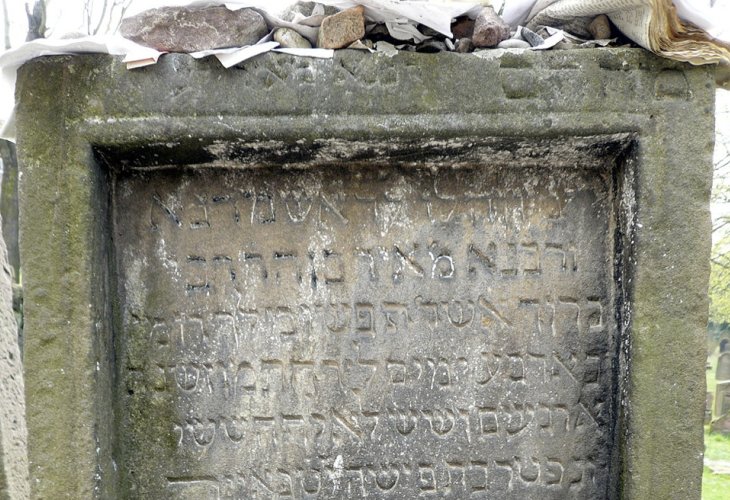On This Day in Jewish History: The Imprisonment of the Maharam of Rothenburg
Today marks the anniversary of the Maharam of Rothenburg's capture, as he tried to escape to Israel 733 years ago.
 Tombstone of the Maharam
Tombstone of the MaharamRabbi Meir ben Baruch, known as the Maharam of Rothenburg, was one of the greatest early rabbinic authorities and among the last of the Tosafists.
Born in Germany, the Maharam studied under Rabbi Yechiel of Paris and Rabbi Shmuel of Falaise, as well as Rabbi Yitzchak ben Moshe, author of the "Or Zarua". He eventually returned to Germany, where he served as a rabbi in several communities and became the foremost halachic authority in Ashkenazi Jewry.
In his later years, the German authorities started restricting Jewish emigration, which they viewed as "escape". The Maharam attempted to escape to Israel, but on the 4th of Tammuz 1286, after reaching Italy, he was captured and brought back to Germany.
Initially, he was not allowed to study Torah in jail, but eventually, he was given writing materials and, while in prison, he wrote a commentary on the Order of Taharot in the Mishnah.
The Maharam's students endeavored to ransom him, but since the demanded amount was exorbitant, the Maharam refused to allow himself to be ransomed, in accordance with the Mishnah (Gittin 4:6), "Captives should not be ransomed for more than their value, to avoid societal harm." As a result, he remained imprisoned for seven years until he passed away in prison. The Jewish community had difficulty ransoming his body, and only 14 years later was the Maharam's body redeemed and buried in Worms.

